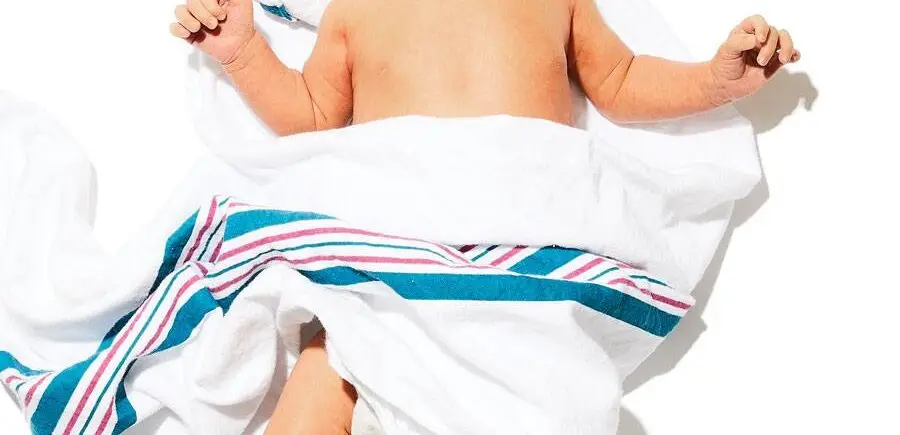PHOTOGRAPH BY Michael Persico
The rigid, confounding, densely bureaucratic Baby-Friendly Hospital Initiative has morphed into a system that diminishes a mother’s ability to make the best choices for her child.
by REGAN FLETCHER STEPHENS·
“CHRISTIE DEL CASTILLO-HEGYI is an affable 43-year-old with an impressive résumé. Based in Arkansas, she’s an ER doctor and a former National Institutes of Health scientist who got her undergraduate degree at Brown University, where she studied brain injuries. She’s also a mother of three. In March of 2015, she published an open letter detailing the heartbreaking story of her first child’s birth in Albuquerque. Her newborn had jaundice, hypoglycemia, and severe dehydration after having suffered accidental starvation in the early days of exclusive breast-feeding. She wrote about the misinformed breast-feeding advice she got from hospital staff and how her child, now nine, lives with long-term developmental disabilities and seizures as a result of the starvation. “We are potentially putting ourselves at odds with the protective natural instinct to respond to a baby’s cry by telling mothers that their colostrum is enough (which for many it may not be) and by making them fear failure by giving their child supplementation when they need it,” the letter declares. She says the Baby-Friendly Hospital Initiative’s exclusive breast-feeding guidelines are dangerous.
A year after she wrote that letter, del Castillo-Hegyi and Jody Segrave-Daly, a lactation consultant and NICU nurse, launched Fed Is Best, a nonprofit that promotes safe infant feeding and serves as a resource for parents who breast-feed, bottle-feed or both. It’s one of the first organizations to publicly question the breast-feeding-only policies adopted by hospitals and proselytized by Baby-Friendly USA.
The volunteer-run foundation has more than 700,000 Facebook fans, including maternity nurses, doctors, and scores of women looking for support from a community that doesn’t stigmatize formula or bottles.
Fed Is Best has published hundreds of stories from mothers sharing everything from feelings of shame and guilt to dangerous complications and, in at least one case, infant death. Jillian Johnson delivered her son Landon in a Baby-Friendly hospital in Southern California that allegedly only provided formula with a prescription. Committed to breast-feeding, she fed Landon round the clock. A hospital lactation consultant told her that because of her diagnosis of polycystic ovarian syndrome, she might be producing inadequate milk and suggested she take herbs to boost her supply. Less than 12 hours after the baby came home, he went into cardiac arrest from dehydration; he died 15 days later. “If I had given him just one bottle, he would still be alive,” Johnson wrote.
A few days after Benny, our oldest child, was born, her bilirubin levels were still rising. I was told there were two causes: a blood-type incompatibility issue, and the fact that because of the cesarean, my milk hadn’t come in yet. (Milk helps flush out the bilirubin.) Nurses at Presbyterian encouraged me to supplement with formula, even providing me with a tube system to mimic breast-feeding. I never entertained the idea. Looking back on that fraught time now — we had to return to the hospital less than a day after being discharged because Benny’s bilirubin level was dangerously close to passing the “blood-brain barrier” — I can’t believe I didn’t just give her the goddamn formula. Our baby recovered, thanks to treatment with specialized lights and the frenzy of pumping I did to eke out one ounce of milk each hour. When I read the Fed Is Best stories, even seven years later, I feel a fresh wave of relief — but also have a sharp realization. Nowadays, mothers are judged for all kinds of choices we make for our babies, especially how we feed them. The pressure I felt to breast-feed — from other moms, medical professionals, society at large — was rooted long before I actually became a mom.
The 2011 Surgeon General’s “Call to Action” kicked off a flurry of breast-feeding initiatives nationwide. According to del Castillo-Hegyi, Baby-Friendly USA has had a hand in guiding the narrative when it comes to implementing best practices. The problem, she says, is that the organization has a clear self-interest in the outcome — accreditation is Baby-Friendly USA’s entire raison d’être, and the fees that hospitals pay to be designated Baby-Friendly are part of what keeps Baby-Friendly USA solvent. “Whatever organization is involved with something as important as infant health and infant feeding and things that can literally change the course of an infant’s life should not have financial conflict of interest.”
In 2016, around the time Fed Is Best was launched, Joel Bass and Tina Gartley, pediatricians at Newton-Wellesley Hospital in Massachusetts, and Ronald Kleinman, a physician from the department of pediatrics at Massachusetts General Hospital, published a paper in the Journal of the American Medical Association titled, “Unintended Consequences of Current Breast-Feeding Initiatives.” In it, the doctors outlined the dangers of the BFHI — specifically, the risks of suffocation and falls for babies whose mothers fall asleep while holding them. The paper acknowledges that exclusive breast-feeding and rooming-in have benefits in the postpartum period but notes that especially for women who are exhausted from long birthing experiences or are on medication post-cesarean, there are also risks: “An overly rigid insistence on these steps in order to comply with Baby-Friendly Hospital Initiative criteria may inadvertently result in a potentially exhausted or sedated postpartum mother being persuaded to feed her infant while she is in bed overnight, when she is not physically able to do so safely.”
Read more at Philly Magazine.
